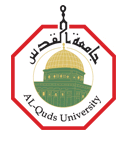Human Rights Clinic
Al-Quds University
 The Human Rights Clinic at Al-Quds University in Palestine was launched in September 2006 in order to give law students at Al-Quds University a chance to study human rights issues in Palestine within the context of international law, while at the same time receiving training in human rights advocacy from some of the top Palestinian human rights NGOs. Students in the program gain practical experience while providing important legal services to the community and helping Palestinian NGOs oppose human rights abuses. The overall goal of the Clinic is to expose students to the various ways used to defend and promote respect for human rights.
The Human Rights Clinic at Al-Quds University in Palestine was launched in September 2006 in order to give law students at Al-Quds University a chance to study human rights issues in Palestine within the context of international law, while at the same time receiving training in human rights advocacy from some of the top Palestinian human rights NGOs. Students in the program gain practical experience while providing important legal services to the community and helping Palestinian NGOs oppose human rights abuses. The overall goal of the Clinic is to expose students to the various ways used to defend and promote respect for human rights.
The HRC was established to address several social needs. International human rights law has enormous relevance in the context of the Israeli-Palestinian Conflict, but human rights abuses have led to considerable skepticism in Palestinian society about the efficacy of human rights law. As stated by Munir Nusseibeh, the Clinic Coordinator, “The absence of international law as a guiding principle has led to neglect of the subject in the discourse of the general public and the education of young lawyers in particular . . . The Clinic works towards rectifying this situation by (1) engaging law students in a thorough review of International Humanitarian Law and International Human Rights Law as they apply to the Israeli-Palestinian conflict, (2) through fieldwork projects where students work alongside practicing lawyers and organizations, allowing students to experience a number of different methodologies and strategies for the promotion of human rights and (3) through giving free legal services to the public, and advocating against human rights violations in the Israeli-Palestinian conflict. This, it is hoped, will lead to a renewed belief in the feasibility and the desirability of working towards international rule of law, and a vision of how each individual may be able to contribute to this.”
The program has been teaching human rights advocacy through theory and practice. The theoretical component is based on a group of lectures given by guest lecturers who speak about human rights advocacy methods. For example, some guest lecturers explain about litigation in the Israeli Supreme Court, and how this helps to advance human rights in the Occupied Palestinian Territory (OPT) and Israel, while others speak about the military court system. The lectures cover the various human rights issues and advocacy methods that are used in Israel-Palestine.
The practical component of the education has been designed to both teach AQU students and serve Palestinian society, and has been divided into five projects. The first is that students give free legal services to the public in Jerusalem using Israeli law. Five students every year give services to 10-15 clients per week. Second, ten students document human rights and international humanitarian law violations in the Occupied Palestinian Territories. These students serve the needs of Palestinian human rights organizations, and help them collect affidavits to write professional reports or to make complaints. Third, students lead a campaign that opposes the Ring Road, which is a road the Israel is planning to build in East Jerusalem to connect settlements together, but will result in separating Palestinian communities from each other. The fourth project is a campaign that defends women’s rights in Palestine by working to overturn a law that decreases the punishment for killings in the name of family honor. Finally, a group of 12 students teach high school students their rights, focusing on women’s rights, prisoners’ rights, and children’s rights.
The Human Rights Clinic at AQU provides an excellent model of relevant clinical legal education adapted to the particular local context. As stated by Munir Nusseibeh, the MacJannet Prize “confirms the importance of engaging students as advocates and civil society activists who use their enormous energy and enthusiasm to make positive change.”
To learn more, visit the HRC website>>